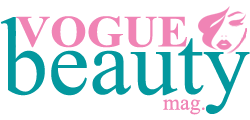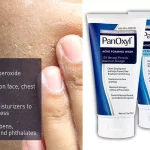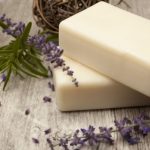Nowadays, feminine products are becoming a trend in society. Feminine soaps, shampoos, and even make-up are well liked by people around the world. However, one product that is not that well discussed by people is feminine wash.
Even though it is a sensitive subject, women should understand that feminine wash is more than just a product; it is a form of hygiene that every woman should have. It doesn’t just make a woman’s private part cleaner; it also makes sure it is protected from any kinds of bacteria that can cause diseases.
Now, there are a lot of feminine wash products available from different manufacturers and companies, but many of them contain substances that shouldn’t be used around your private parts.
By doing so, everyone should be aware of which substances should not be present in their feminine wash.
Sensitivity of Female’s Vulva
The fact that feminine care products are applied to a particularly delicate and absorbent area of a woman’s body sets them apart from standard cosmetics. Vulva skin is the body’s most vulnerable skin due to the density of sebaceous glands, hair follicles, and enlarged blood vessels. In comparison to the rest of a woman’s exposed skin, vulvar skin can be up to seven times more sensitive.
Because the vagina is lined with lymphatic and blood veins, substances that come into contact with the vaginal opening or go within the vagina can quickly enter the bloodstream.
So, below are the things you should keep in mind that should not be in your feminine wash.
1. Sodium Lauryl Sulfate (SLS)
Surfactants are substances that function as foaming and cleaning agents. They are the main components of the majority of toothpastes, facial cleansers, intimate washes, body washes, and many other items.
As the primary component of many products, including toothpaste, facial cleansers, body washes, intimate washes, and shampoos, SLS has the potential to irritate skin, particularly “down there.”
Be on the safe side and stick with feminine washes that contain natural surfactants made from things like coconut oil, sugar, or veggies.
2. Soap
Instead of synthetic surfactants, some feminine wash formulations use soap. Despite being undoubtedly natural, soap is harmful to your vagina. The problem is that soap upsets the normal pH balance of your intimate parts and harms the vaginal flora since your intimate areas have a low acidic pH and soap has an alkaline pH.
In addition, soap can dry up the mucosal lining in these places. Because your vagina has a low pH, the soap’s alkaline pH can easily upset its balance and harm the vaginal flora.
3. Parabens
Pharmaceutical and cosmetic products frequently contain a class of preservatives known as parabens. They are prized for their ability to combat a variety of germs and fungi. Even though parabens are thought to be harmless in small doses, people with sensitive skin have reported experiencing skin rashes and contact dermatitis as a result.
You never know how the skin of your female genital area will respond to parabens, even if you’ve never had an allergic reaction previously.
4. Chlorine Bleach (Trihalomethane)
Have you ever noticed how pristinely white and new a typical brand’s fresh sanitary look is? It turns out that it doesn’t really represent purity. It contains chlorine bleach, which, when combined with other disinfection byproducts (DBPs) such as trihalomethane, can produce the hazardous substance dioxin.
The EPA found that dioxin accumulates in fatty tissues and poses a substantial risk to the public’s health, with no “safe” level of exposure. According to the article, the toxic bleach may cause major health issues such as aberrant tissue growth in the belly and reproductive organs, abnormal cell proliferation throughout the body, immune system suppression, and disturbances of the hormone and endocrine systems. That will undoubtedly cause us to reconsider our next “clean” buy.
5. Fragrance
Hundreds of different compounds can be found in synthetic or perfumed perfumes. Some, like methylene chloride, are cancer-causing, while others might result in headaches, nausea, vomiting, dizziness, coughing, and skin irritation. Almost rarely are these ingredients advantageous or suitable for our skin’s demands.
The majority of producers merely claim that their products contain “fragrance” without going into detail about the specific compounds they contain. Some of the synthetic components that are used in fragrances might irritate and dry up the skin.
The safest option for feminine products is definitely fragrance-free, but if you want yours to smell, look for items that have natural aromas, like flower water.
List Of Other Harmful Substances
- Dioxin is a byproduct of bleaching that is particularly common in pads and tampons. Dioxin can result in toxic shock syndrome, vaginal bacterial infections, cancer, amputations, and death.
- EDTA is a binding agent used in personal care products that can result in fever, headaches, nausea, vomiting, diarrhea, abdominal cramps, and low blood pressure.
- Toluene is a common solvent that can irritate skin, has been linked to some blood cancers (malignant lymphoma), and when inhaled by pregnant women, can harm the fetus’ development.
- Used to change the color of items, FD&C Color has been related to respiratory distress and hyperactivity in youngsters.
- Triclosan is a common antibacterial agent that is also an endocrine disruptor, a potential source of bacterial resistance, and harmful to the reproductive system.
Parting Thoughts
Women should take care of themselves mentally and physically. Thus, cleaning the areas that should be kept clean is a must. That’s why feminine wash is a product that should be promoted and used by all women in this world.
However, feminine wash does not also guarantee the safety of a woman’s private part because not all feminine wash has the appropriate ingredients to act as a vaginal cleanser. Thus, all people, not only women, should be informed about a feminine wash ph balance or feminine wash ph care because all of us should have the right care for everything.
Also, don’t forget that if you’re carrying a child, always look for feminine wash for pregnant women so that it will not harm any babies at all.









